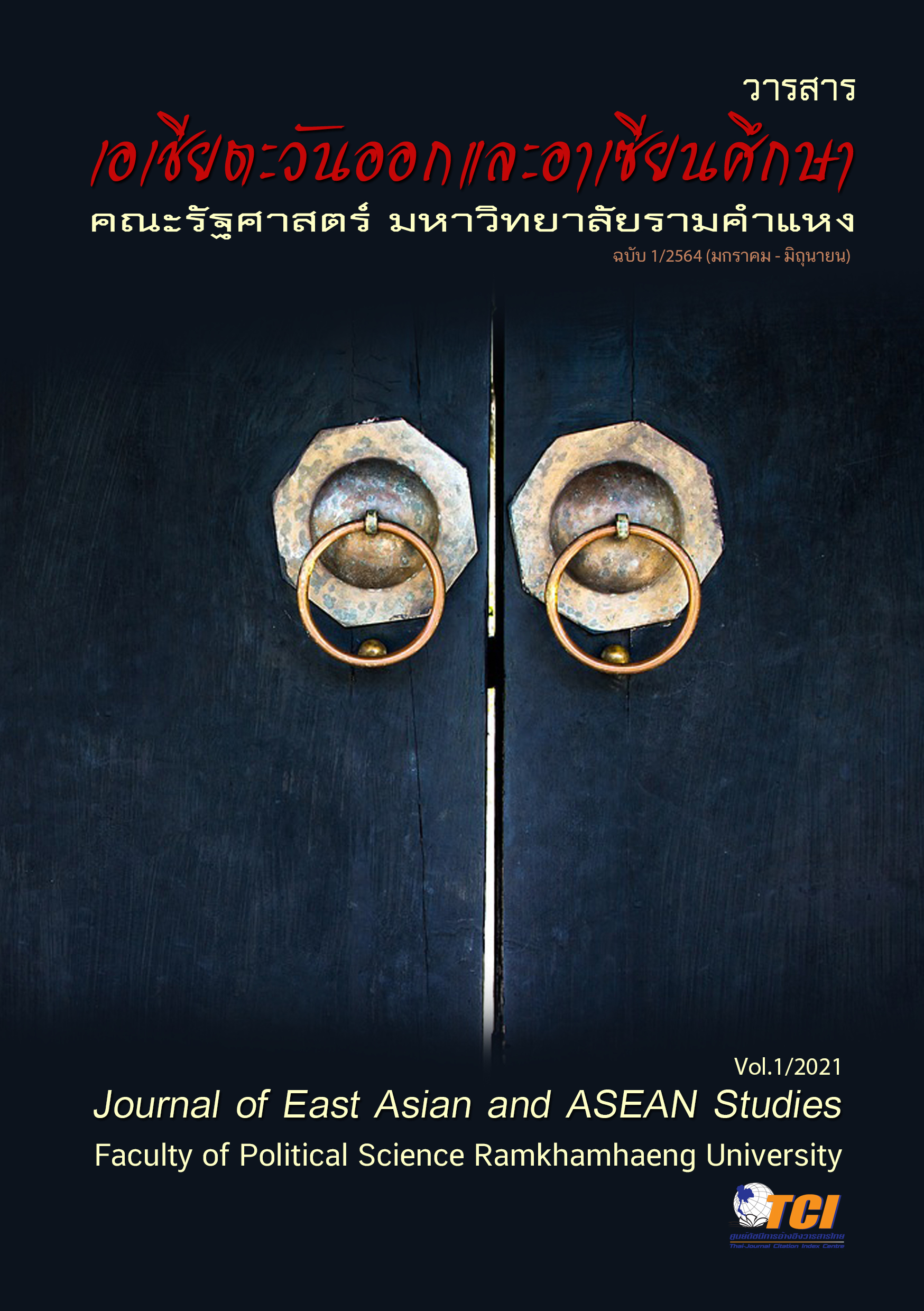Postgraduate Education Service Quality and Student Satisfaction: Heilongjiang Bayi Agricultural University, China
คำสำคัญ:
postgraduate education service, service quality, student satisfactionบทคัดย่อ
This paper discusses the connotation and characteristics of postgraduate education service and postgraduate education service quality; considers postgraduates as the core stakeholder of postgraduate education and the main body of evaluation of postgraduate education service quality; analyzes the causality between postgraduate education service quality and student satisfaction. The revised SERVQUAL scale can be used to measure service quality and student satisfaction. A stratified sampling method was adopted to conduct a questionnaire survey among 222 postgraduates in HBAU, and the survey results were analyzed by SPSS. The analysis results show that postgraduates are generally dissatisfied with the service quality of HBAU. Variables such as gender, work experience, undergraduate graduation institution types, enrolment ways and school will affect postgraduates’ satisfaction with the service quality of postgraduate education.
เอกสารอ้างอิง
Athiyaman Adee. (1997). Linking student satisfaction and service quality perceptions: the case of university education. European Journal of Marketing, 31 (7), 528-540.
Chen Junliang, Liu Jun et al. (2017). Analysis on the influencing factors of student satisfaction with teaching quality in higher vocational colleges: based on the survey of 3 higher vocational colleges in Nanchang. Higher Vocational Teaching, 8, 5-9.
Ham C L. (2003). Service quality, customer satisfaction, and customer behavioral intentions in higher education. Dissertation Abstracts International, 64(5),1758.
Hu Zixiang. (2006). Research on the evaluation model of higher education service quality. Modern University Education, 2, 61-67.
Kimani, Sarah Wambui, Kagira, Elias Kiarie, & Kendi, Lydia. (2011). Comparative analysis of business students perceptions of service quality offered in Kenyan universities. International Journal of Business Administration, 2(1), 98.
Li Min. (2016). Research on the evaluation system of higher education service quality. Journal of Social Sciences of Shanxi Colleges and Universities, 28(4), 69-72.
Li Zhenxiang & Wen Jing. (2012). An empirical study on the improvement of student satisfaction and attractiveness in higher vocational colleges. Educational Research, 8, 71-76.
Ma Wanmin. (2009). The evaluation model of higher education service quality. Modern Education Management, 1, 62-64.
Oldfield, Brenda M, & Baron, Steve. (2000). Student perceptions of service quality in a UK university business and management faculty. Quality Assurance In Education, 8(2), 85-95.
ShankM.D.,Walker, M.&Hayes,T. (1995). Understanding professional service expectation: Do we know what our students expect in a quality education. New York: Journal of Professional Services Marketing,13(1), 71-89.
T Levitt. (1972). A product-line approach to service. Harvard Business Review, 50(5), 62-65.
Tax S S&Brown S. (1998). Recovering and learning from service failure. Sloan Management Review, 40(1), 75-88.
Tian Xizhou & Wang Xiaoman. (2007). Investigation and analysis of college students’ satisfaction. Higher Education Exploration, 5, 126-128.
VL Lewis&NC Churchill. (1983). The five stages of small business growth. Social Science Electronic Publishing, 3(3).
Yang Lanfang, Chen Wanming & Wu Qingxian. (2011). Research on the status and influencing factors of student satisfaction with higher education service quality-based on the survey and analysis of undergraduates from eight universities in Jiangsu. Value Engineering, 30(34), 1-4.
ดาวน์โหลด
เผยแพร่แล้ว
รูปแบบการอ้างอิง
ฉบับ
ประเภทบทความ
สัญญาอนุญาต
บทความที่ตีพิมพ์ได้ผ่านการพิจารณาจากผู้ทรงคุณวุฒิ ทัศนะและข้อคิดเห็นจาก บทความในวารสารเป็นของผู้เขียน ไม่ถือเป็นความรับผิดชอบของคณะผู้จัดทำและศูนย์การเมือง สังคม และอาณาบริเวณศึกษา การนำบทความในวารสารไปตีพิมพ์ซ้ำต้องได้รับอนุญาตจาก กองบรรณาธิการ






